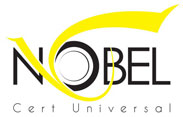The ISO/TS16949 is an ISO technical specification aimed at the development of a quality management system that provides for continual improvement, emphasizing defect prevention and the reduction of variation and waste in the automotive industry supply chain. It is based on the
ISO 9001 standard and the first edition was published in June 1999 as ISO/TS 16949:1999.
It was prepared by the International Automotive Task Force (IATF) and the “Technical Committee” of ISO. It harmonizes the country-specific regulations of quality Management systems.
About 30 percent of the more than 100 existing automobile manufacturers affiliate the requirements of the norm but especially the large Asian manufacturers have differentiated, own requirements for the quality management systems of their corporate group and their suppliers.
TS16949 applies to the design/development, production and, when relevant, installation and servicing of automotive-related products.
The requirements are intended to be applied throughout the supply chain. For the first time vehicle assembly plants will be encouraged to seek ISO/TS16949 certification.
This standard is a common quality system requirement jointly developed by the US, German, French and Italian automotive industry in a concerted effort to improve quality and assure the integrity of supplies to the industry. The requirement is applicable to any organisation that manufactures components, assemblies and parts for supply to the automotive industry.
It is based on ISO 9001:2008 to which has been added specific requirements of the automotive sector.
Some of the areas where ISO TS 16949:2009 adds to ISO 9001:2008 are:
Greater management involvement
- Top Management must review all key processes and the quality objectives should be included in the business plan
- The quality team must be informed of processes not meeting expectations and they should have the ability to stop production to correct quality problems
- Management reviews should be recorded and include the cost effect of poor quality
Greater resource management
- There should be a multi-disciplinary approach whereby design, development, production and quality teams are competent in each other’s areas.
- Product safety should be built in to the design and development process
- Employees should be motivated to achieve quality objectives and there should be clear contingency plans in the event of an emergency
- Inconsistent application of housekeeping standards across the organisation are to be treated as quality and safety issues
Product Realisation
- Product and Process design and development are a single process
- A Control Plan that follows customer requirements should be produced that includes all information relating to the product, processes, measurement, reaction plan and corrective actions. Any system changes should be reflected in the Control Plan.
- There must be a plan to identify, measure and reduce variances
- Suppliers must be accredited to TS 16949 or ISO 9001
Measurement, Analysis, & Improvement
- Manufacturing process studies are required with improvements made to reduce variation
- The need for layout inspections and functional verifications for the product as specified in the Control Plan
Some of the benefits of the ISO/TS 16949:2009 requirement standard are:
- Customer satisfaction: Through delivery of products that consistently meet customer requirements
- Global recognition as a reputable supplier: Certification is recognized and accepted throughout the automotive supply chain as an industry benchmark
- Reduced cost of compliance with customer specifications: Through implementation of a single management system and reduced audit requirements
- Reduced operating costs: Through continual improvement of processes and resulting operational efficiencies
- Legal compliance: By understanding how statutory and regulatory requirements impact the organization and its customers
- Improved risk management: Through greater consistency and traceability of products and services
- Proven business credentials: Through independent verification against recognized standards
